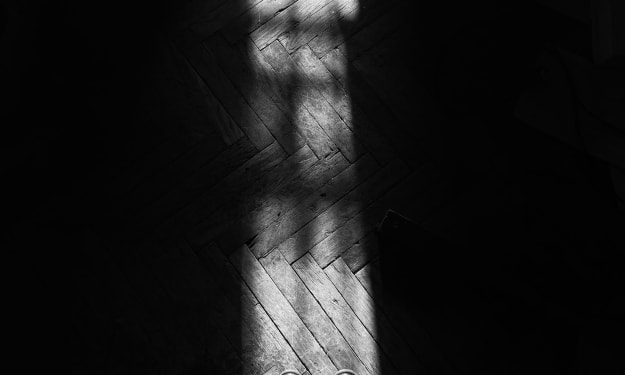Whispers in the Shadows: Understanding the African Taboo of Sweeping at Night
Ultimate guide to navigating African cultural beliefs 2

Whispers in the Shadows: Understanding the African Taboo of Sweeping at Night
In the tapestry of diverse African cultures, where traditions and spirituality intertwine, a seemingly mundane act takes on profound significance—the avoidance of sweeping the house at night. This nocturnal taboo, deeply rooted in the spiritual beliefs of various African communities, unveils a fascinating exploration into the mystical fabric that shapes daily life. In this article, we delve into the reasons behind the avoidance of sweeping at night, shedding light on the cultural nuances that weave through this ancient practice.
The Spiritual Tapestry of Night:
1. A Cosmic Shift:
Night-time in African cultures is not just the absence of daylight; it represents a cosmic shift, a transition from the tangible to the intangible. As the sun sets, the unseen realm awakens, and the boundaries between the physical and spiritual worlds become porous. The night is a canvas painted with the energies of ancestral spirits and supernatural entities.
2. Symbolism of Darkness:
Darkness, often associated with mystery and fear in Western cultures, holds a different symbolism in African traditions. It signifies a profound interconnectedness between life and death, the known and the unknown. The night becomes a sacred space where spirits traverse, and the act of sweeping during this time is believed to disturb the delicate harmony of the spiritual realm.
The Taboo of Sweeping at Night:
1. Awakening Restless Spirits:
Sweeping the house at night is often avoided due to the belief that it disturbs the peaceful rest of ancestral spirits. In many African cultures, it is thought that the act of sweeping stirs up the energies that reside within the home, potentially awakening restless spirits. This disturbance may lead to a range of consequences, from mild misfortune to more severe spiritual disturbances.
2. Invoking Supernatural Attention:
Night-time, with its subdued lighting and ethereal ambiance, is considered a period when spirits and supernatural entities are particularly active. Sweeping during this time may be seen as an open invitation for these entities to take notice. Some believe that the sound of sweeping disrupts the spiritual serenity, potentially attracting unwanted attention from forces that prefer to remain undisturbed.
Cultural Variances:
1. West African Perspectives:
In West African cultures, sweeping at night is often associated with symbolic cleansing rituals. The belief is that the night holds a unique energy that requires careful navigation. Sweeping is reserved for daylight hours, ensuring that any negative energies accumulated during the night are ceremonially cleansed in the morning sun.
2. East African Traditions:
East African societies link the taboo of sweeping at night to the belief in the transitory nature of spiritual energies. It is thought that the night allows these energies to flow undisturbed, and interrupting this process through sweeping may disrupt the natural order. The morning, with its gentle light, is considered a more suitable time for cleansing activities.
Navigating Practical Alternatives and Rituals:
1. Preventive Measures:
To adhere to the taboo, African households often adopt preventive measures. Placing brooms or cleaning tools upside down at night is a common practice, symbolizing a temporary pause in the act of sweeping. This is believed to signal to spirits that the household acknowledges and respects their presence.
2. Daytime Cleaning Rituals:
Many African cultures emphasize daytime cleaning rituals. Sweeping, dusting, and cleansing activities are performed in the presence of sunlight, signifying a harmonious collaboration between the physical and spiritual realms. These rituals honor the delicate balance between seen and unseen forces coexisting within the home.
Cultural Sensitivity and Respect:
1. Understanding Local Customs:
For those interacting with African communities, understanding and respecting local customs surrounding sweeping at night are essential. Visitors are encouraged to familiarize themselves with the cultural nuances, recognizing that practices rooted in spirituality hold deep significance for the community.
2. Preservation of Cultural Heritage:
As African societies undergo modernization, the preservation of cultural heritage becomes increasingly vital. The taboo of sweeping at night serves as a reminder of the intricate connections between the physical and spiritual worlds, fostering a sense of continuity and reverence for ancient beliefs.
The taboo of sweeping at night in African cultures reveals more than a mere superstition—it unveils a glimpse into the profound spirituality that governs daily life. As night falls and the unseen forces within African homes come to life, the act of sweeping becomes a delicate choreography that respects the intricate dance between the tangible and the ethereal. In upholding this nocturnal taboo, African communities celebrate traditions that honor the unseen forces shaping their cultural identity, weaving threads that connect the present with ancient spiritual wisdom.
About the Creator
Gaia Mokoena
Embark on a captivating journey with me as I offer a unique perspective on untold stories from the African continent—stories brimming with unexplored cultural richness and diversity.






Comments
There are no comments for this story
Be the first to respond and start the conversation.